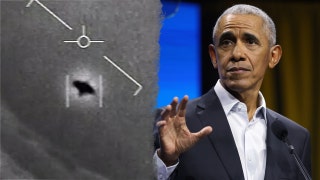Ray Kelly slams Mayor Bill de Blasio: He eviscerated the NYPD
Former NYPD Commissioner Ray Kelly, CEO of The Guardian Group, joins Sean Hannity with insight on 'Hannity.'
Former New York City Police Commissioner Ray Kelly warned on "Hannity" Tuesday that the Big Apple may return to the bad old days of the 1970s and '80s if the spike in crime and political attacks on law enforcement are not reversed soon.
"New York was the safest big city in America for several decades, a lot of hard work done by a lot of people," Kelly – who served as commissioner under mayors David Dinkins and Michael Bloomberg – told host Sean Hannity. "I lay the problems of New York City solely at the feet of [Mayor] Bill de Blasio. He has eviscerated the police department."
"One of the most important, significant things [de Blasio] did was to eliminate the anti-crime units throughout the city — they are the real crime fighters," said Kelly, referring to the plainclothes units that were disbanded last month.
"[They were] the ones who have been able to address the violent crime for several decades in New York City. That unit is gone. The police are demoralized, retirements are at record levels, and the future is quite frankly very bleak in New York, certainly for the next 18 months under this administration."
De Blasio, who is term-limited, will leave office on Jan. 1, 2022. There are thus far several potential Democratic candidates, as well as at least one prominent Republican — Guardian Angels founder Curtis Sliwa.
Sliwa claimed to the New York Post in March that he is "the only candidate with the onions to take back the city" from its present decline in that regard.
CLICK HERE TO GET THE FOX NEWS APP
Kelly told Hannity that another major contributor to New York's decline has been the state's bail reform law, passed shortly after Democrats took the majority in the State Senate to control the governor's mansion and both chambers of the legislature.
"That bail reform act could be changed very easily just by giving judges the discretion to keep people in custody who are a danger to society," he said. "Virtually every state in the United States has that privilege except for New York and the New York State Legislature will not do it," he said.
"We saw in the pandemic, which hit New York harder than anyplace else, how businesses were able to operate remotely, so you put on top of that this increased crime explosion and the question is, is New York going to be anything like it was prior to the pandemic?"









































